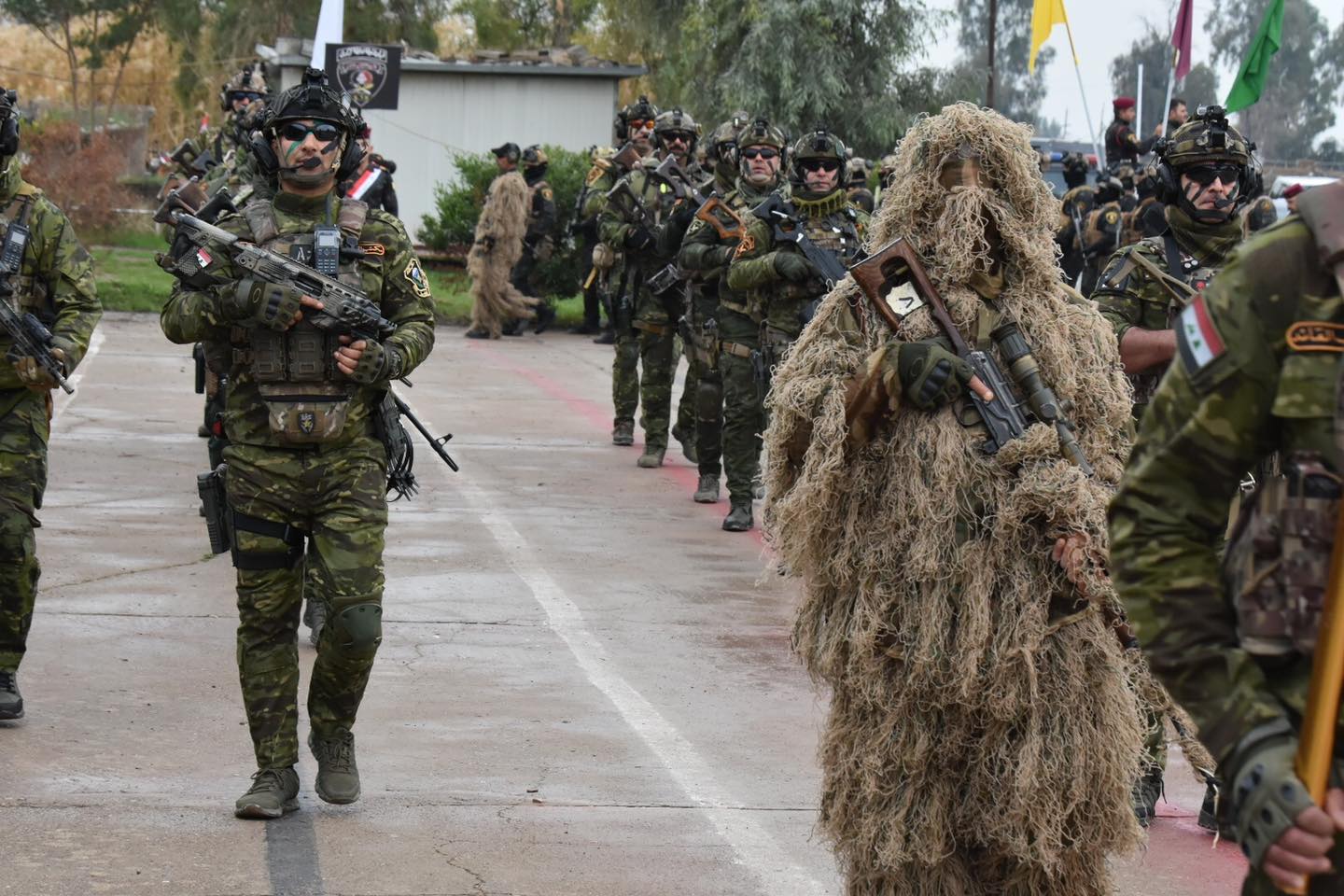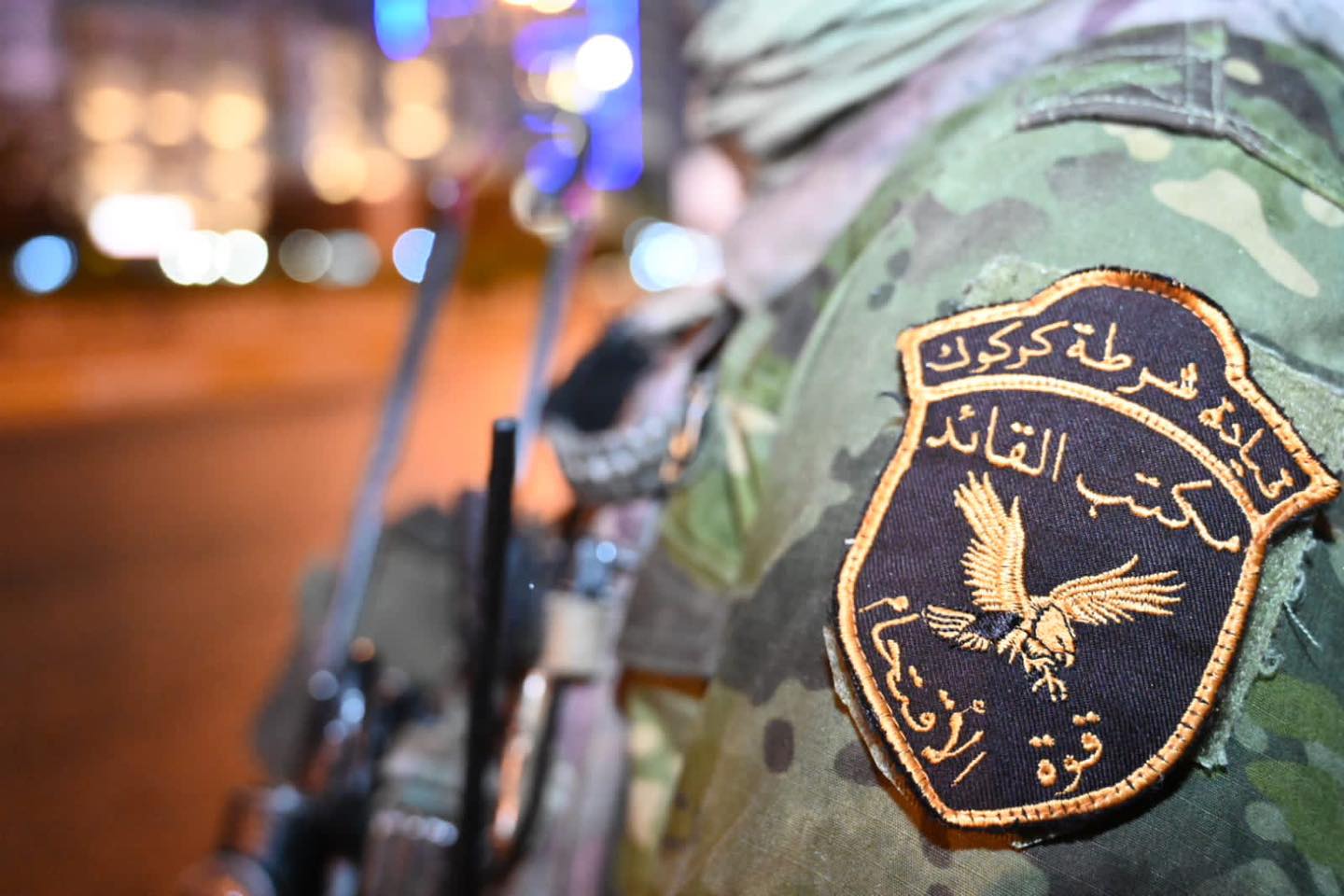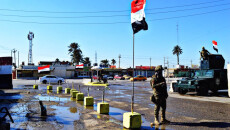The Kirkuk police are ready to take back the security of the city from the army, as included in the agenda of the Iraqi government and the people's only condition for the security forces is fair treatment and indiscrimination.
According to the agenda of the Iraqi government led by Mohammed Shia Sudani, the army, the pro-Iran Shiite paramilitary of the Popular Mobilization Forces, PMF, known as Hashdi Shaabi, and federal police forces should withdraw from the center of the cities, to hand over the security file to the local police under the Ministry of interior.
"I think we will have no shortages. We will be happy to serve all the residents of the city as we have been doing since 2003 since the local police undertakes 80% of the security issue," Lieutenant Colonel Amer Nuri, spokesperson of Kirkuk police, told KirkukNow.
Heavily armed troops have been deployed at the center of most Iraqi cities and towns since the 2014 attacks by Islamic State of Iraq and the Levant ISIL.
The local police undertakes 80% of the security issue
"The military forces must be withdrawn from the cities and the security file must be handed over to the local police," Mullah Karim Shukur, a Kurdish member of the Iraqi parliament, believes.
The government's agenda also includes the formation of an emergency regiment of local police and the people of Kirkuk to participate in taking over the security of the province.
"The interior minister will discuss the changes with the police chief. There are several shortcomings that will be resolved in the future to hand over the security file to the police, which is only for the center of the cities," Kirkuk police spokesman added.
“We can’t take over the security at the outskirts of Kirkuk which is a vast area, around the districts of Dubiz, Hawija and Daquq, which require the army capabilities.”
Kirkuk province consists of four districts, covers an area of more than 9,600 square kilometers and has an estimated population of more than 1.7 million people.
Lately, the attacks targeting the Iraqi army and police by roadside bombs has remarkably increased in the disputed territories, pushing the Iraqi government to review its measures.
A police officer and his driver were shot dead by unidentified gunmenin Kirkuk on their way back from duty early hours of January 18, in the area of Jabal Bor, east of Kirkuk, near the ring street at the outskirts of Kirkuk city.
On December 21st, an intelligence officer and two soldiers were killed, two others were injured when a roadside bomb hit a convoy of the Iraqi army on Wednesday at night in Garaw area of Sargaran sub-district of Dubiz district.
Kirkuk, 2022: Iraqi army military vehicle deployed downtown. KirkukNow
The people of Kirkuk prefer the local police to take over full control of Kirkuk city center yet still are concerned about the professional capabilities and discrimination in dealing with different components of the multi-ethnic city.
“If the local police are capable in terms of their behavior and work, and if they are well trained, I think they should have the security issue in the city, but on condition that they do not discriminate and treat everyone equally,” said Adnan Abdulrahman Damrchi, a Turkmen tailor at Kirkuk Grand Bazaar.
The local police are now part of the Kirkuk Joint Operations Command, which includes the army, PMF and federal police.
"I think the security file should be handed over to the local police, because they are all from the city and not foreigners, but I hope they do not make any distinction between ethnic groups as there was before," said Hardi Nuri, a Kurdish fabric store keeper.
"The police should have no shortages in terms of weapons and equipment and the Interior Ministry should fully support them so that they can take over the security file," he added.
Though the Iraqi government declare defeat of IS in Iraq back in 2017 yet due to its geographical location, the disputed territories have always been a safe haven for the remnants and sleeper cells of IS whom target the Iraqi security forces ISF and civilians.
Kirkuk, Iraq’s second largest reserves, located 238 kilometers north of Baghdad, is an ethnically mixed province for Arabs, Kurds and Turkmens. It has long been at the center of disputed territories between Baghdad and the Erbil.
I think the security file should be handed over back to the local police because they are all from the city
Sleeper cells and resistant pockets of the Islamic State of Iraq and Syria ISIS are regrouping in the rural areas of the disputed territories between Baghdad and Erbil where neither the Iraqi Security Forces ISF nor those of the semi-autonomous Iraqi Kurdistan Region IKR are deployed.
They are posing a high threat by different tactics such as hit-and-run attacks, kidnappings, snipers, IED and roadside bombs targeting the Iraqi forces and civilians.

There are hundreds of kilometers of security gaps between Iraqi government forces and the Peshmerga around Kirkuk and other disputed areas in the provinces of Nineveh, Diyala and Salahaddin, which according to previous statements of the security forces has led to several attacks by ISIS in these areas.
"There are people in the local police who must first change their beliefs about ethnic discrimination and think about reconciliation and coexistence," said Oudai Abid, an Arab resident of Kirkuk.
Within the framework of security changes; a few days ago, the 18th and 20th brigades of the 5th Division of the Federal Police were exchanged and their checkpoints were handed over to the 11th Division of the Iraqi Army. The area extends from Daquq district up to Rashad subdistrict of Hawija district which is under control of 3rd Division of the federal police.
A spokesman for the police command said they were preparing to take over the security file and received seven drones last month to assist the local police of Kirkuk in monitoring the security in the city.
In recent years, the Iraqi Defense Ministry and the Peshmerga negotiated to fill the security gap in Kirkuk and other disputed territories which resulted in the formation of several joint coordination commands and agreed to form two joint military brigades to take over security tasks in Kirkuk yet so far it has not been deployed.
The Peshmerga forces have been deployed in most of the disputed territories since 2014 and the attacks of ISIS, until they retreated to the federal government forces in the events of October 16, 2017, as a result of the standoff between Baghdad and Erbil over the referendum for independence.






